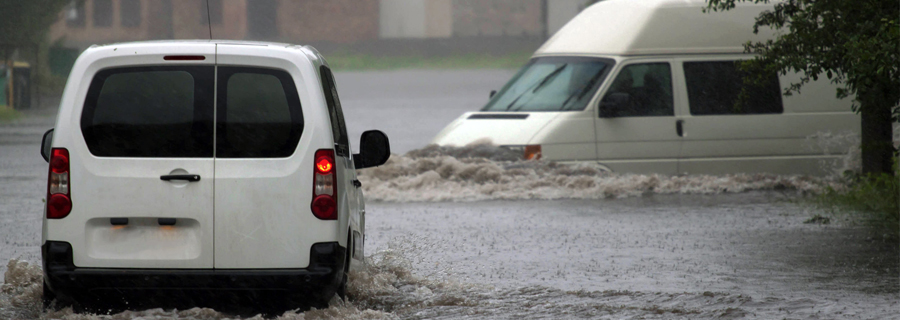Flood
What is considered an Urban Flooding Emergency?
Urban Flooding is the inundation of land not normally wet by storm water and / or sea water causing direct damage to residential, commercial, educational, recreational, cultural and industrial buildings and property. This can also include damage to infrastructure, stock, equipment and facilities.
It is also the inundation of land not normally wet by storm water and / or sea water causing indirect losses due to disruption of economic activity, stress and anxiety, injury and death, polluted water supplies, and damage to wildlife habitats both in areas which are inundated and in areas which are isolated.
Prevent
The National Strategy for Disaster Resilience, developed by the Council of Australian Governments, provides high-level guidance on disaster management to agencies with a role in emergency management. Foremost in the Strategy is the principle of all of society taking responsibility for preventing disasters.
In the context of flooding:
Individuals
People should be aware of their own flooding risks and should follow advice from emergency services when responding to warnings.
View Flooding Awareness Map in full screen.
To increase community resilience, individuals should actively plan and prepare for protecting their own life and property. Resilience is also increased by knowing and being involved in local community disaster or emergency management arrangements, and volunteer roles.
Government agencies, Local Governments and Communities
Should always be open to discuss flood risk within the community and have a significant role in strengthening our community’s resilience to disasters.
Resilience is developed through land management and planning arrangements, supporting individuals and communities to prepare for extreme events, and having effective education systems available demonstrating how to assess risks and reduce exposure and vulnerability to hazards.
Additional prevention tasks carried out by state and local government include:
- Risk assessments to gain an appreciation of flood risk
- Engaging and working with the community regarding the management of flood risk
- Developing and implementing stormwater management plans
- Maintenance of stormwater infrastructure
- Provision of emergency information and flood warnings
- Emergency response planning for coordinated response during floods
- Helping communities to recover and learn following a flood and building their resilience to future events.
Private Industry and Businesses are able to plan for the risk of disruption, and can ensure arrangements are in place to maintain critical services.
Businesses can and do play a fundamental role in supporting a community’s resilience to disasters. They provide resources, expertise and essential services on which the community may depend. Businesses, including critical infrastructure providers, can also make a contribution by understanding the risks that they face and ensuring that they are able to continue providing services during or soon after a disaster.
State Government will work with industry to support community access to essentials, such as food, fuel and cash, in the event of a widespread blackout. Businesses can access tools and resources and contact SA Business Hotline (1300 142 820) to help with their emergency and continuity planning.
The links below are designed to help businesses plan for emergency situations:
Business Continuity Plans – A quick guide to impact analysis and plan development
Plan and Prepare – State Government advice on how to protect your business
For additional information about Flood Prevention please visit the following websites:
Department of Environment, Water and Natural Resources (DEWNR)
SES – Flood Safe Tips: Things you can do before a flood
The Government of South Australia - Flooding
SAPOL – How to prepare for a Disaster
Prepare
Things you can do now to prepare for a flood event
- Educate yourself of the risks in your area using the Flood Checklist
- Put together an emergency kit - See our guide in the links section
- Be sure to have temporary care lined up for your pets in case of flooding
- Know how to turn off your utility connections
- Review your insurance policy; most homeowners’ policies do not cover flood damage automatically
- Store your valuables and toxic materials in higher areas of your house
- Create a list of the contents in your house complete with photographs. This will be useful for flood insurance claims and tax deductions following a flood event.
- Find a fast and safe route to high ground from your home, place of work and school.
Protect your finances
Emergencies are really expensive which can become a significant long-term burden. To ensure that your finances are safeguarded you can protect your main income source by taking out life insurance and income protection insurance.
You should also give consideration to the costs of cleaning up damaged property and replacing lost items to protect your family if the household is affected by an emergency.
Check your insurance cover - A quick guide to understanding Flood InsuranceAct Early
What will you do if your usual ways of getting groceries, petrol or medical supplies are disrupted for several days?
Sandbags
When a significant rainfall or potential flooding warning is issued by the Bureau of Meterology (BOM) Council will begin to sandbag potential flooding areas and will arrange for field crews to be rostered over the event (including during the times when the heaviest rain is expected) to provide assistance to the community and emergency services staff where required.
Council also make Sandbags available for public collection from Willochra St Depot next-door to the Largs North Fire Station. After 6pm on the day of an event, any remaining sandbags will be left on pallets outside the gates of the depot.
The links below will help you assess your situation and prepare for a flood event
Risk Assessments for your property or business - How to perform a simple Risk Assessment for your home
Flood Warnings – A link to the South Australia Bureau of Meteorology Alert Page
RSPCASA Animals in emergencies – How to plan for your pets
Australian Disaster Resilience – Knowledge Hub (Interactive mapping)
Respond
Who do I contact?
To report an emergency or life threatening situation call 000 (triple zero)
For Flood and Storm response (SES) call 132 500
For more information:
Control Agency (Response and Recovery): State Emergency Service (SES)
Hazard Leader (Prevention and Preparation): Department of Environment, Water and Natural Resources
In the event of a severe Flood, the State Emergency Service (SES) will be the control agency responsible for managing the emergency response. Such an event is likely to involve a whole-of-government response. Further information on who to contact in an Emergency can be found on our printable Emergency Contact List.
What can I do during a flooding event?
To ensure the most effective, well-coordinated response from our emergency services and volunteers when disaster hits individuals will need to:
- Assess if you are able to stay in your house while the emergency passes, take immediate action if necessary
- Enact your own Emergency Management plan
- Raise furniture and electrical appliances on beds and tables. Unplug all electrical items
- Put sandbags in the toilet bowl and cover all drain holes to prevent sewage back flow
- Know where you will go and what will you take with you if you have to leave. Note: Some transportation routes may be closed in case of flooding
- Shut off your utilities
- Ensure you have contact details for family and friends readily available
- Meet Friends or Family at a pre-arranged safe location if you have arranged to do so
- Take pets with you
- Assist your neighbours if they need help
Act Safely:
Follow advice or directions given by the emergency services.
Stay away from floodwater! Don't drive, ride, boat, walk, play or swim in floodwater. Watch out for and don’t approach downed power lines.
The majority of flood-related deaths in Australia are due to people entering floodwater. People and vehicles can be swept away in fast moving floodwater. It's often deeper and faster than it looks. If you do become stranded, stay with your vehicle, two feet of moving water is deep enough to sweep away a vehicle and six inches can sweep away an adult.
Floodwater can be contaminated by sewage or toxic chemicals.
Floodwater can contain submerged objects and debris that can cause injuries
Stay informed (you may be part of a larger evacuation):
Listen to your local ABC Radio Station
Check the SES Websites (follow SES on Twitter)
SA Police and the Department of Transport advice on Emergency Road Closures
Bureau of Meteorology Flood Advice (PDF)
Recover
All agencies will work in a swift, compassionate and pragmatic way to help communities recover from devastation. Communities will need to learn, innovate and adapt in the aftermath of disastrous events.
Returning Home - Before entering your property make sure it is safe to do so and the floodwater has dropped below floor level
- Do not turn on any lights or power points until a qualified electrician has checked the entire electrical system in your home including all appliances
- Do not allow children to play in or near floodwaters
- Boil tap water until supplies have been declared safe
- When floodwater rises, it is common for spiders, snakes, rats and mice to look for a drier home - often inside our properties. If you have floodwater through your property check for unwanted visitors
- Prepare yourself before returning home; your property and all your valuables may have been damaged in the flood
Watch out for:
- Health risks following flooding (mosquitoes, contamination and disease). Notify Council of any potential hazards
- Stay away from rivers and creeks until flood waters have fully receded, Flooding impacts on Riverbank and Coastline there is risk of collapse
- Dams, levees and pump stations may remain at capacity long after the rain stops falling
- Ongoing transport disruption and Infrastructure failure may be evident. Be aware of which transportation routes may be closed because of this
- local services are disrupted and unavailable for a period of time
If you cannot return home
The Department of Human Services
The SA Housing Authority Department can assist with accommodation in crisis situations. The department brings together a range of services and policies designed to support vulnerable people and to help build resilient communities. More information can be found on these services can be found on the SA Gov website.
This department also offers a large number of services designed to assist you in recovering from an emergency situation including relocation and displacement advice, information on Volunteering and support to replace documentation. Find out more about how they can help you by visiting their Disaster Recovery website Disaster Recovery website.
Other offerings provided include Youth Justice, Disability and Reform, and Community and Support services.
Disaster Waste Management
A major event is likely to generate a large volume of debris and other waste that will overwhelm existing systems and infrastructure for waste management. This can have real and lasting impact on affected communities and the environment.
Such an event will require resources beyond local and regional capacities, because of this Council will undertake consultation and communication with representatives from State Government, Emergency Services and the Community to ensure the waste can be responsibly managed.
In a major event it would be reasonable to assume that normal collection services would be adversely affected across the whole Council area. Council will make publically available its early response plan as soon the full extent of the clean-up area is known.
Council continues to monitor and manage any environmental, human health, social, economic and/or other impacts resulting from Disaster Waste Management activities, and continuously evaluates waste management operations for future improvements. Visit Councils web page to find out more about waste management.
Vulnerable People
Remember hospitals, aged care facilities and schools may also be affected by the event and may need the support of the community.
Your own support group of friends, family and neighbours may not be available to you as they could have to manage their own recovery efforts.
Transferable Skills
In the recovery stages of an event people with trade skills can become a very important resource for the community.
In the case of large scale events; State and Local Government resources will be deployed to clean-up and repair operations in public areas. Support that these agencies can offer for clean-up and repair on private properties is extremely limited, because of this volunteers are at the forefront of strengthening disaster resilience in Australia. They can assist neighbours in:
- Repair and recovery of property
- Clean-up and debris removal
- Supply distribution – Water, power, transport etc.
Non-government organisations (NGO’s)
Many NGO’s organise volunteers during the recovery stages of a disaster and Australians often turn to them for support or advice and the dedicated work of these agencies and organisations is critical to helping communities to cope with, and recover from, a disaster. Australian governments will continue to partner with these agencies and organisations to spread the disaster resilience message and to find practical ways to strengthen disaster resilience in the communities they serve.
If you would like to volunteer to help in any way after a large scale flooding event please contact the City of PAE or the Red Cross
Industry and businesses
If you, your customers or suppliers are affected by the emergency event you should enact your Business Continuity Plan to speed up your recovery.
Certain types of event may cause panic purchasing which could have an adverse effect on area of your business and your ability to re-stock your products through your suppliers. Transport disruptions may also cause delays in supply.
Pets
Everything you will need to know about managing your pets in an emergency can be found on the RSPCA website
There is also some additional information on our website
Protect your finances
There might be financial assistance available from governments and other agencies after an emergency; it’s usually small and targeted at immediate needs. It won’t be enough to replace your home or valuables. Thinking about how you can cover financial losses caused by an emergency will save you a lot of stress and burden.
If you have insurance cover for your property and possessions, contact your insurer as early as possible.
Emergency and disaster assistance
The following contact details may be useful in the recovery stages of a flooding event:
National Disaster Assistance
- Australian Government disaster recovery assistance hotline call 180 2266
- Disaster Recovery Payment Can provide a one-off, non-means tested payment for eligible adults and children who have been adversely affected by a major disaster.
- Disaster Assist Provides information on assistance for current disasters.
- National Registration and Inquiry System - NRIS registers, finds and reunites family, friends and loved ones after an emergency. It is managed and operated by Australian Red Cross.
- People evacuated in an emergency (or people trying to locate family or friends) can phone the Red Cross Inquiry Centre on 1800 727 077 for callers in Australia or international callers on +61 393 283991.
Long Term Recovery
There may be instances where recovery from a disaster can take longer than anticipated. Be prepared!
While no one likes to talk about it, emergencies can cause loss of life. This can have emotional and practical impact to you and those around you. Ensuring you have life insurance and an up to date Will can help to ease the burden on those left behind.
There may also be things that affect you normal daily routine such as:
School and child care closures
Enforced work place closures
Injury or disability caused by the emergency event
The following contacts are always available (not just in an emergency) to help those in need:
- Kids Helpline Call: 1800 551 800
- Lifeline Call: 131 114
- Mental Health: Assessment and Crisis Intervention Service (ACIS) Opening hours: 24 hours Call: 131 465
- Parent Helpline Call: 1300 364 100
- Pregnancy, Birth and Baby Helpline Call: 1800 882 436


